have been universally recognized as the healthiest food! However, there are some things we usually hear about fruits and vegetables that have been given the wrong foothold as fact, but may not be entirely true. Many of these rumors started with a dangerous low-carb trend that may have led you to believe that eating chunks of butter on grilled steaks is actually healthier than eating natural "sugar"; in fruits, or that potatoes are a threat to weight gain. The editors of estet-portal.com will dispel some of the
most common myths about vegetables and fruits.
- Let's shed some light: the whole truth about fruits and vegetables
- Fruits and vegetables – panacea for all diseases Let's shed some light: the whole truth about fruits and vegetables
No form of fresh, frozen, canned, dried and 100% juice fruit or vegetable is better for you than another ! Fruits and vegetables in all forms are full of essential nutrients. Whether you like fresh or dried, the most important thing is that you eat fruits and vegetables! xxxx>
Myth 2: Juice is unhealthy
While drinking fruit juice may have some nutritional benefits, experts say that eating whole fruit is preferable. Store-bought juice may contain added sugar,
According to WebMD, previously contained sugars are released when fruit is crushed, making juice more likely to cause tooth decay compared to eating fruit. The juicing process also removes the natural fiber content of the fruit, lowering the glycemic index. As a result, people can consume more calories for less nutrition.
Myth 3: Fruit is best consumed on an empty stomach
According to this myth, fruits can cause digestive problems and are less nutritious when taken with food. No study has been able to confirm such a link. The only effect fruits can have is to slow down the release of food from the stomach. According to Healthline, this is actually helpful.
Subscribe to our page on
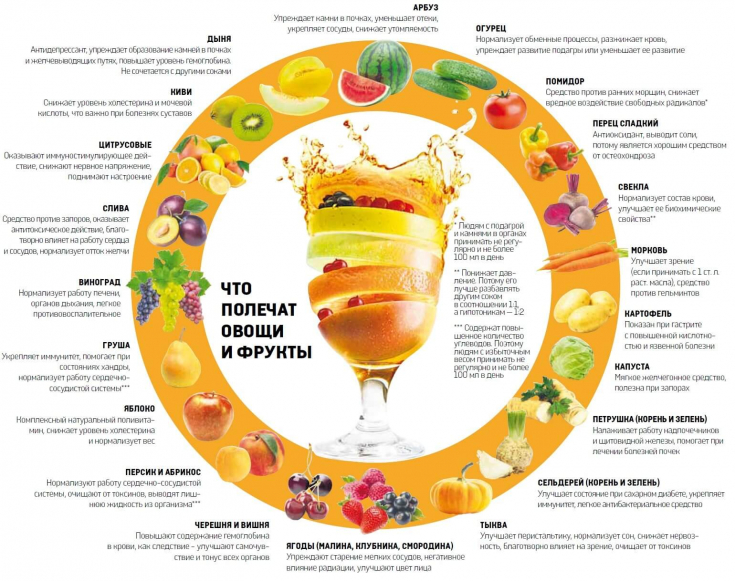
Nutritional value is also not affected, as the digestive system is able to extract the nutrients from fruit, whether eaten with meals or on an empty stomach.
Myth 4: Try not to eat fruit before bed
In general, eating well a few hours before bed can disrupt a person's sleep cycles. However, when snacking at night, fruits are less likely to interfere with sleep than other foods, especially processed ones.
10 Ways to Lose Weight
They add that eating a banana before bed provides potassium, which can prevent cramps at night. Including high magnesium fruits such as bananas, apricots or dates can also help you relax and improve sleep.
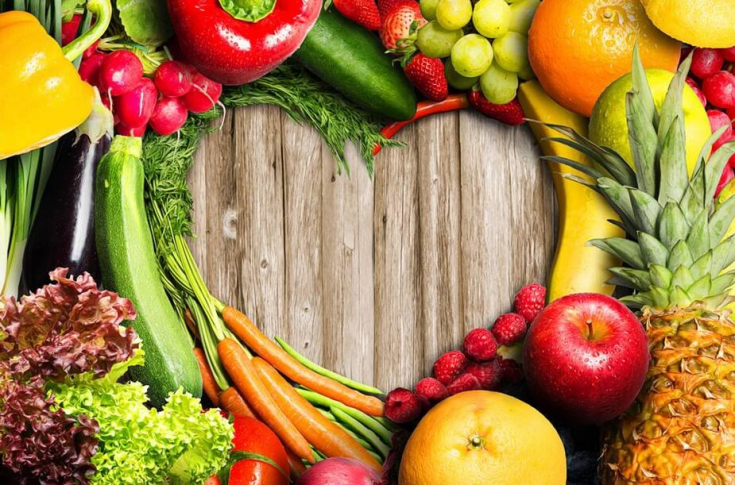
When potatoes are soaked in oil, deep fried, or soaked in bacon and high-fat cheeses, yes...excessive calories, fat, and cholesterol come into play, hence and negative impact. In fact, potatoes can actually help with weight loss/maintenance. Potatoes are a great source of vitamins C and B6, a good source of fiber (which keeps your stomach going longer) and manganese, and one of the best dietary sources of potassium! Plus, each potato contains only 110 calories, making it a great choice for maintaining a healthy weight.
deep-fried or soaked in bacon and high-fat cheeses, yes...excessive calories, fat, and cholesterol come into play, hence the negative impact. In fact, potatoes can actually help with weight loss/maintenance. Potatoes are a great source of vitamins C and B6, a good source of fiber (which keeps your stomach going longer) and manganese, and one of the best dietary sources of potassium! Plus, each potato contains only 110 calories, making it a great choice for maintaining a healthy weight.
deep-fried or soaked in bacon and high-fat cheeses, yes...excessive calories, fat, and cholesterol come into play, hence the negative impact. In fact, potatoes can actually help with weight loss/maintenance. Potatoes are a great source of vitamins C and B6, a good source of fiber (which keeps your stomach going longer) and manganese, and one of the best dietary sources of potassium! Plus, each potato contains only 110 calories, making it a great choice for maintaining a healthy weight.
Potatoes are a great source of vitamins C and B6, a good source of fiber (which keeps your stomach going longer) and manganese, and one of the best dietary sources of potassium! Plus, each potato contains only 110 calories, making it a great choice for maintaining a healthy weight.
Potatoes are a great source of vitamins C and B6, a good source of fiber (which keeps your stomach going longer) and manganese, and one of the best dietary sources of potassium! Plus, each potato contains only 110 calories, making it a great choice for maintaining a healthy weight.
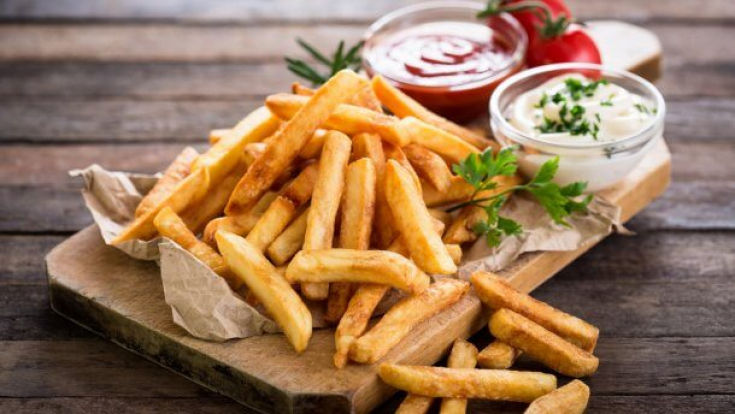 Myth 6: The more colorful the fruit or vegetable, the more nutritious it is
Myth 6: The more colorful the fruit or vegetable, the more nutritious it is
Overall, this is a good rule to follow, but.. .white color group also has many attractive nutritional characteristics! Cauliflower is full of antioxidants, vitamin C and folate. Mushrooms provide vitamin D, unlike other foods. Cabbage is full of vitamins A, B, C, and K, as well as calcium, iron, and fiber. Eating a variety of fruits and vegetables, each with its own unique nutritional profile, is most important.
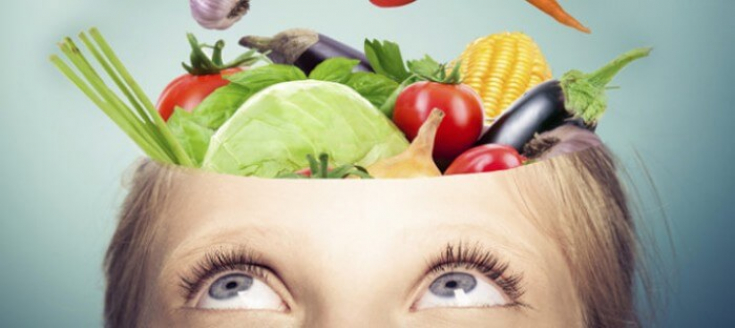 Myth 7: Vegetarian diets are not complete diets
Myth 7: Vegetarian diets are not complete diets
Research on vegetarianism has shown that populations that follow a vegetarian diet and lifestyle maintain an optimal health and have a longer life expectancy. With any diet, vegan or vegetarian, variety is the key to providing your body with a balanced amount of nutrients, carbohydrates, proteins and fats.
Myth 8: The sugar in fruits is bad for you
Yes, fruits contain sugar, but this sugar is different from the sugar we are used to! The main sugar in fruits is fructose, which some refer to as fruit sugar. Fruit contains water, fiber and other beneficial nutrients, making it the best choice to include in a balanced and healthy diet. Refined forms of sugar — including table sugar, honey, and high-fructose corn syrup — consumed as added sugar in sugar-laden soda, candy, and baked goods should be consumed in moderation. Too much added sugar can contribute to weak bones, obesity, fatigue, lack of concentration, and tooth decay.
Myth 9: Vitamin C is a natural remedy for colds
Despite the fact that many studies have been done, researchers have found that eating fruits rich in vitamin C (such as oranges) for the prevention or treatment of colds is of little benefit. However, the vitamin appears to help marathon runners, skiers, and soldiers in subarctic environments.
"Vitamin C at doses up to one gram per day during several winter months did not have a consistent positive effect on the incidence of colds," concluded one review of both randomized and non-randomized trials .
Myth 10: People with diabetes can't eat fruit
Compared to carbohydrates, moderate amounts of fruit do not spike blood glucose levels. "Whole fruits are a great source of antioxidants," says Kathy Barbera of Northwell Health Systems in New York. “They have a lot of fiber, so they make you feel fuller and satisfy your hunger. They also add a lot of flavor to a diabetic diet.
One study found that fruit consumption in general was associated with a lower risk of type 2 diabetes, while fruit juice consumption was associated with a higher risk. Vegan Foods: A Guide to Dairy-Free Treats for
Fruits and vegetables – panacea for all diseases
are healthy foods that provide the body with many beneficial nutrients, including fiber, vitamins and minerals.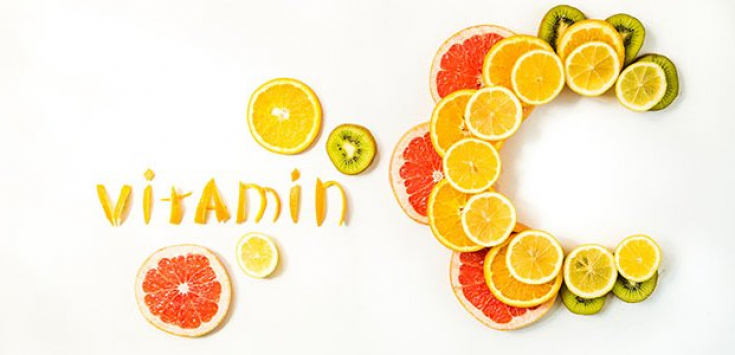
There are many myths
about fruits and vegetables
, but little scientific evidence to support them. There is no perfect time of day to eat fruit, for example. And despite the fact that nutritionists forbid eating fruits after 2:00 pm, in our article we made an argument why you can eat them.
Consumption of fruits and vegetables contributes to weight loss and lower blood sugar.
More useful information on our channel in






Add a comment